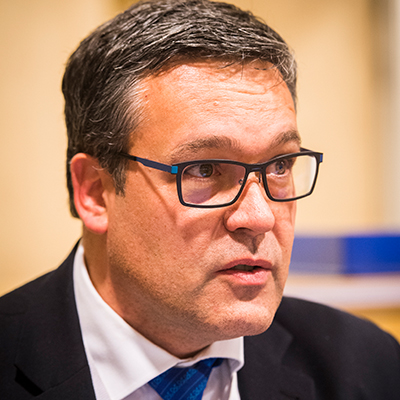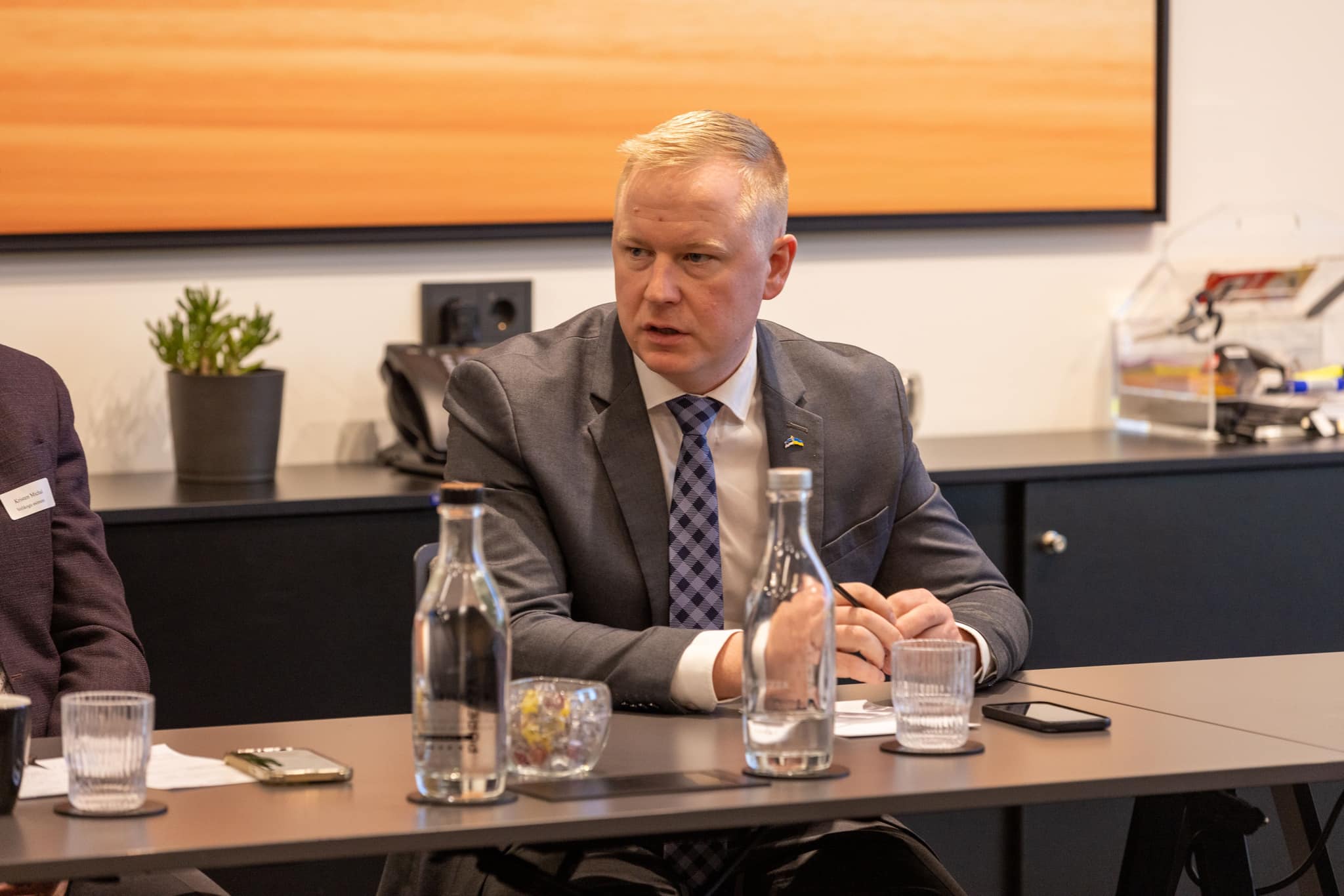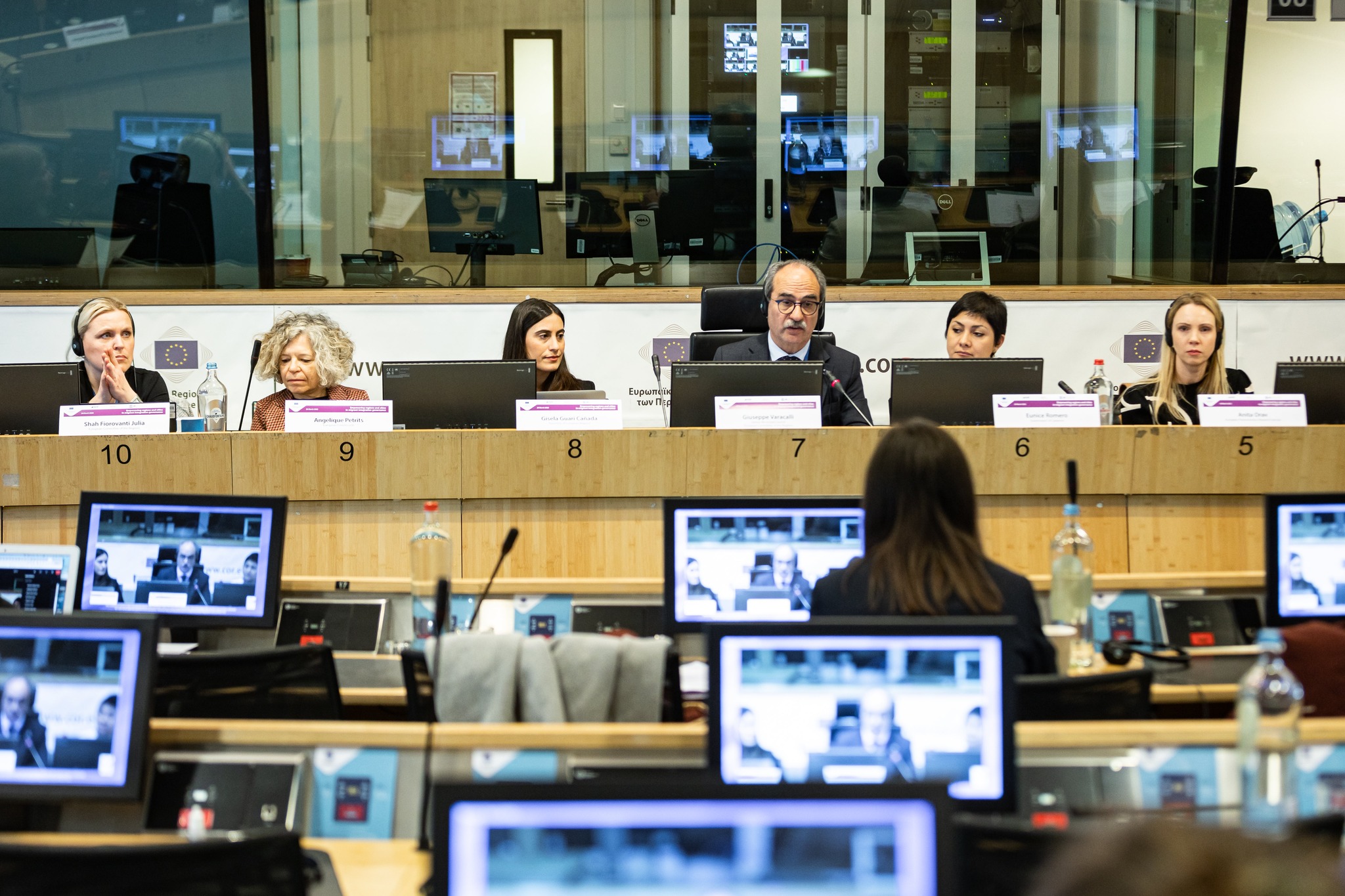Michiel Rijsberman sounds the alarm: cutting EU funds might jeopardise many projects in regions and cities, with the citizens losing out. “We keep urging to maintain the budget for our policies, to concentrate on sustainability and innovation and for less bureaucracy”. The European Regional Development Fund (ERDF) and the Cohesion Fund make up about 1/3 of the total EU budget, and reduce economic differences between EU regions.The European Commission’s proposal for a multi-annual financial framework now unfortunately proposes a sharp decrease in the cohesion fund budget of 46% and a 12% cut to the budget for European territorial cooperation, despite being recognised as one of the policies with the most tangible EU-added value. Rijsberman is therefore leading the debate for regions and cities in the European Committee of the Regions.
Cohesion Funds have continuously proven to have a high European added value and that improves the EU’s image in the eyes of its citizens. The Cohesion Fund represents the expressed solidarity of “richer” Member States with “poorer” ones in terms of building key infrastructure, with clear and proven benefits for those Member States that contribute most to the EU budget. The proposed cuts will most likely hamper achievement of economic, social and territorial cohesion.
“EU funds attract investors, multiplying the power of action”
Dutch provinces, including Rijsberman’s province of Flevoland, receive for instance about 200 million euro per year for regional economic development. “That might not seem much, but it attracts investors who would otherwise have stayed away.”
“We succeed in making that sum four times as large,” added Rijsberman in a recent interview in Dutch newspaper NRC Handelsblad, especially since Dutch regions do not receive regional subsidies anymore from the Dutch government since 2011.
“Strikingly, the argument back then was: you don’t need us, because you already have Europe”.
Power to drive climate change adaptation
Rijsberman also urges for more focus on climate change adaptation. The European Commission’s proposal to set a goal for climate-related spending of 25% of the total Multi-Annual Framework in 2021-2027. That target though is far below what is possible and even necessary to fully implement the EU’s commitment under the Paris agreement.
While I support the fact that the ERDF and CF have become greener and polluting activities will be excluded from the scope of the regulation, achieving the Paris targets represent a major challenge for Europe.
The CoR has long been a defender of ambitious climate objectives. Since the ERDF and Cohesion Fund are the main financial instruments in the EU budget to contribute to the climate objectives, Cohesion Policy’s conditions should include a requirement on the part of member states to fulfill the obligations stemming from the objectives of the Paris agreement
At a time when citizens demand to see the added value of the EU, cutting EU funds which are most visible on the ground and provide real change to people’s lives in terms of investment in skills and infrastructure could be very counterproductive.
Cutting #cohesion funds might jeopardise many projects for our citizens. @rijsberman @D66Flevoland leads the debate @EU_CoR: https://t.co/z0lv2pKy0z & in the Netherlands: https://t.co/zYh9w6DAaR. “We keep urging to maintain the budget, to focus on sustainability & innovation” pic.twitter.com/70gLRE027B
— ALDE-CoR (@ALDE_CoR) 29 November 2018
We lobbyen niet alleen in Brussel, maar ook in Den Haag voor de Europese subsidies waar we ons economisch beleid mee betalen. @NRC schreef er over: Provincies vrezen voor minder geld uit Brussel https://t.co/H4XqX8Rn9o #leestip
— Michiel Rijsberman (@rijsberman) 29 November 2018





